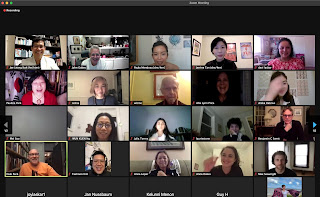Herbert Marcuse's EROS and Civilization
A fascinating attempt to meld psychoanalytic and Marxist analyses, which yields many insights and much hope. While holding fast to Freud's idea that civilization is the result of the repression of the pleasure principle in favor of the reality principle, Marcuse argues for his own idea of a surplus repression, which is the result of historically determined social domination due to scarcity. As technology creates abundance, such domination becomes increasingly irrational, opening the way for the reduction of surplus repression and even biological repression. In short, we will work less and play more. As civilization matures in the era of abundance, sexuality will be transformed into Eros, which will diffuse the pleasure principle into all aspects of life, including work. Right now, we don't have abundance, but we do have aesthetics ("the science of sensuousness") and archetypes such as Orpheus and Narcissus to provide an image of what can and will be. From Herman Hesse

